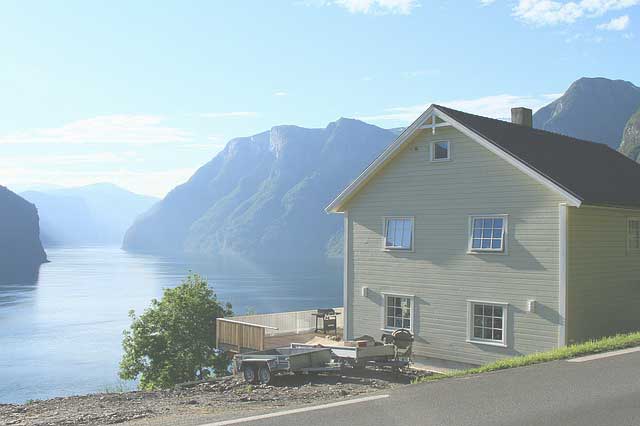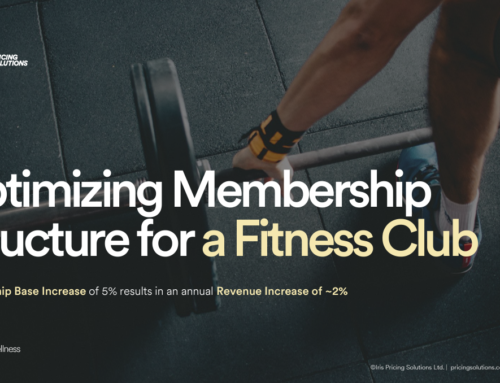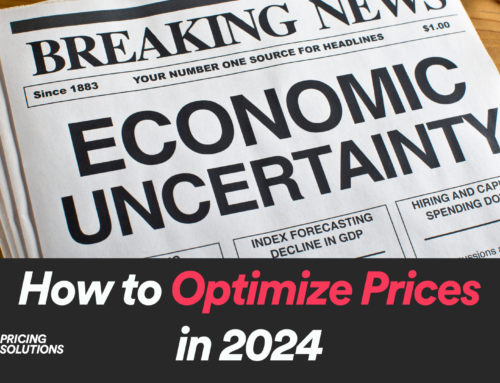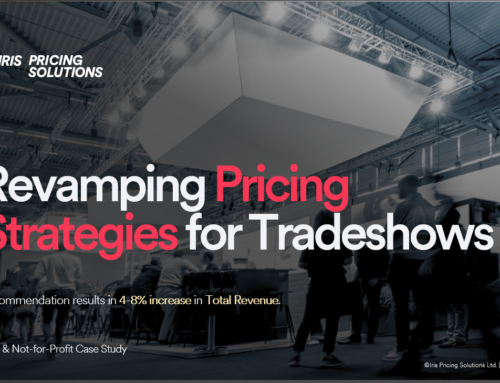I abhor across-the-board price increases; they have no connection to value and are driven by laziness and fear. Any price adjustment should be based on value.
If the value is strong, there is an opportunity either to raise prices or grow share. If the value is weak, pricing must be adjusted accordingly to protect your brand. Otherwise, you risk becoming irrelevant. Not all your products have the same value to the customer, and that’s why across-the-board price increases are so absurd.
Good pricing means knowing where your power is — and where it is not
For example, it may not be enough to take a product with real pricing power up 5%. By contrast, taking a product with no pricing power up by the same amount may be suicide.
We know intuitively that some products have pricing power and others do not. At Pricing Solutions, we call products with real pricing power your “lakefront property.” Why? Properties set on the lakefront in a new development are the first to sell, whereas the least desirable ones on the side road are the last. But that’s because neither of them is priced properly. The lakefront property is typically underpriced, so it sells quickly, while the side-road property is overpriced and sells slowly.
We tend to undervalue our most valuable offering and overvalue our least valuable one, because we have a cost-based pricing mentality – if the cost is not that different, why should the price be? But customers don’t care about your costs; they care about the value of your offering to them.
Once you understand the mentality of value, opportunities start to open up
At the Olympics, figure skating is “lakefront property;” demand always exceeds supply, and television viewing is at its highest for the gold medal performances. To capitalize on this “lakefront property,” the tickets at a recent Olympics were auctioned off rather than pre-priced. Guess what happened? The tickets to the finals sold for as much as $10,000 a seat – astronomically higher than ever before.
Professional baseball has begun to recognize its lakefront pricing. Who does everybody love to hate in baseball? The Yankees, of course – unless you’re a Yankees fan. Management realized that ballparks were selling out whenever the Yankees came to town, but when out-of-division teams were playing, ticket sales were down. So now some ballparks have three classes of tickets: the Classics, which are the highest priced and include teams like the Yankees, Red Sox and a few others; division teams, which are rivals in the same division; and out-of-division teams, which are priced the lowest because they generate the least interest.
William Marriott Jr. (of Marriott Hotels) relates that he wanted to buy a property for a new hotel. However, he found it was just too expensive, until someone in the organization suggested charging more for ocean views. The company did just that and was able to proceed with the deal.
Google AdWords is the ultimate lakefront-property pricer; the more valuable a search word is, and the higher you want to be listed when someone does a search, the more you pay.
You may be thinking: That’s great for professional sports, hotels and the Web, but how do I make this concept work for my organization? It doesn’t matter what business you are in; the principle of lakefront property applies. You just have to determine your company’s lakefront property and price it accordingly. Ask yourself:
Where does demand exceed supply in my business?
My brother, a successful advertising executive, asked me what the lakefront property was in his business. In advertising, it’s all about the next hot campaign. The people with the best track record for producing results are the ones that clients most want working on their campaign. Therefore, the solution is to raise prices for your high-powered creative talent rather than giving away their time to subsidize the efforts of everyone else.
A certain amount of confidence needs to be applied in pricing — you must believe in your lakefront property. After all, if you don’t believe in it, why should the customer? Conversely, if customers do believe in the value of your lakefront property and you are not pricing it accordingly, they’re never going to tell you. They’ll just thank their lucky stars you’re giving them such a good price. You might recall an Ikea ad campaign in which a lady thought she had gotten such good prices that she hopped in the car and told her husband to drive fast before the store realized what it had done.
That’s funny, but you won’t be laughing if your customers feel the same way about how you are pricing your lakefront property!
Paul Hunt is president of Pricing Solutions Ltd. His pricing column appears monthly in the Financial Post, and he is a regular blogger at the FP Executive blog.





